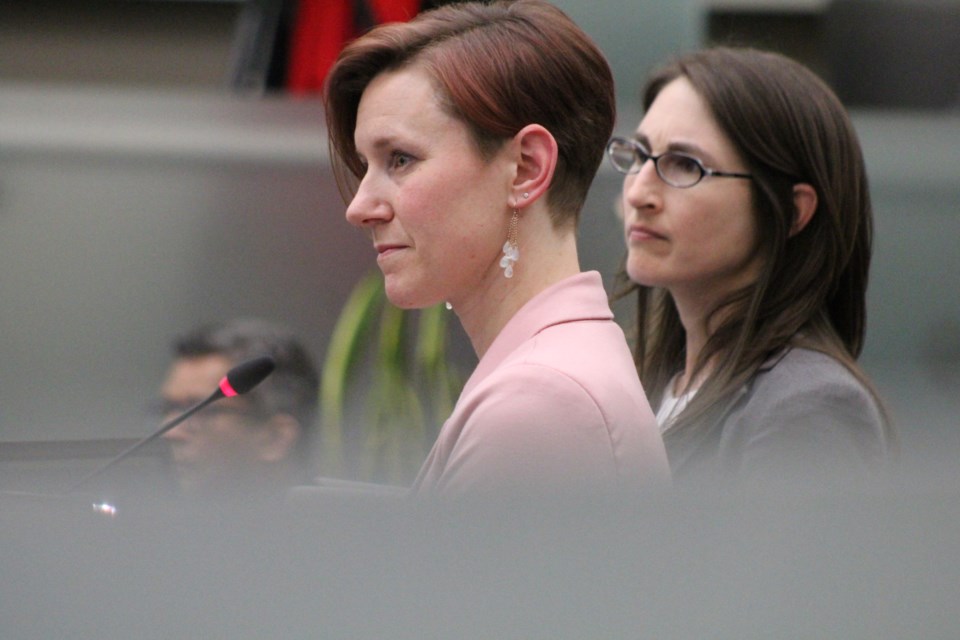Three of the area's top public health officials spoke at last night's Barrie city council meeting, in front of a standing-room-only crowd, about Barrie's opioid epidemic and whether declaring a public health emergency is the right move, right now.
Barrie has the third worst opioid problem in the province for cities with more than 100,000 people.
Over the course of an hour, Simcoe Muskoka District Health Unit medical officer of health Dr. Charles Gardner and associate medical officer of health Dr. Lisa Simon, as well as Dr. Rebecca Van Iersel from the North Simcoe Muskoka Local Health Integration Network (LHIN), fielded numerous opioid-related questions from council on what has been done, what's being done and what has yet to be completed around the issue under the Simcoe Muskoka Opioid Strategy (SMOS).
"This is a critical community issue and one that is not going away," Simon said.
Council will have city staff investigate the implications of having the mayor declare a public health emergency in Barrie, under the Emergency Management and Civil Protection Act, due to the escalation of the opioid crisis, and report back to committee in three weeks.
Such a move could trigger funding for front-line work such as treatment, prevention, education and harm reduction. It would also open discussions around the root causes of addiction, including poverty, housing, unemployment, mental illness and trauma.
Following a deputation from Barrie-Springwater-Oro-Medonte MP Alex Nuttall, council also added the provision of having city staff look into more funding available from other levels of government before an emergency is declared.
The motion passed unanimously, with the city calling for federal and provincial funding "to support, enhance and expand evidence-based treatment and rehabilitation services, addiction prevention and education, and harm reduction measures."
However, Gardner said the board of health has not yet taken a firm stance on a public-health emergency declaration, which the city has not yet done.
While health officials have been following the crisis very closely, "I can't really say that the board would be in favour of that position," he said, adding the prospect hadn't come up in earlier discussions.
Gardner said city officials should be cautious about what a public health emergency could entail.
"We need to put the full range of the (SMOS) plan in place, but we also need to have the expectation that this is going to go on for a while before we bring it under control," he said.
SMOS, which was unveiled last year and was highlighted during last night's meeting, is being used as the multi-pronged playbook in fighting the local crisis. The health unit is also part of a group working on bringing a supervised consumption site to Barrie.
In 2017, there were 78 overdose deaths in Simcoe Muskoka, including 36 in Barrie. Complete 2018 numbers aren't available yet, but Simon said the information shows a "potential stabilization... so that's our first bit of promising data."
Nuttall urged council to have a plan in place first and look into other government funding before declaring an emergency. He said there's funding available from the province and feds that the city could, and should, apply for to help cover funding gaps.
The MP also wants to see a clear plan from all four levels of government, including the city, the county, the province and the feds.
"You have multiple governments stumbling over what the right process is, coming up with their own philosophies and their own ideas," he said. "Really, there's not a lot of synchronization between the different levels of government. ... If the idea is to create a plan, the plan needs to start with getting all of the players at the table."
